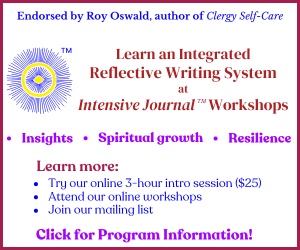FR1.02 – Acuity-Based Staffing Model for Chaplaincy Departments
Presented by Barbara Bullock MDiv BCC and Anthony Smith MDiv BCC
Overview:
The OhioHealth Integrated Staffing Model (OHISM) uses patient acuity as the predictor for staffing. The OHISM is an algorithm that utilizes the patient care level and service demands of a hospital to calculate the full-time equivalent (FTE) needed for a team. The presentation addresses three areas: 1) hospital service acuity, 2) ideal staffing calculation by patient care area, 3) optimal weekly shift coverage strategy (24/7). The OHISM compares hospitals of difference sizes with varying service demands. The OHISM algorithm assigns staffing by acuity at the unit-level and by hospital. Once FTE resources are identified, a method is provided to identify the optimal weekly and shift assignments for chaplains. The OHISM model can be used to identify staffing gaps from the ideal model. Presenters utilize EPIC for service data. It is hoped that the OHISM will lead national benchmarks for chaplaincy staffing.
Learning Objectives:
- Explore an acuity-based staffing model for existing and proposed chaplaincy departments
- Utilize an algorithm to assign staffing hours to hospitals areas based upon acuity and labor demands
- Standardize internal benchmarks to create parity between care sites in a large hospital system
Level: Intermediate
Handout included: Yes
FR1.03 – Perinatal Loss: Supporting the Patient, Their Loved Ones, and the Staff After a Fetal Demise
Presented by Julie Cecil MARE BCC
Overview:
Responding to a fetal demise is never easy. Research shows that staff (L&D, OB, OR, and ED) feel ill-equipped to the meet the needs of families with this kind of loss. These patients are likely experiencing complicated grief (CG) which is possibly more intense than they know how to handle. Navigating the intensity of this kind of loss can be addressed through managing ambiguity and through utilizing tools of support for patients, their loved, and staff. We, as chaplains, can accompany them through this difficult time, as well as helping those with healthy pregnancies who are impacted by previous losses.
Learning Objectives:
- Identify how Complicated Grief (CG) arises during these types of losses and learn indicators and factors for heightened grief in perinatal loss
- Assess how grief from earlier losses can impact current pregnancies
- Describe ways to support the patient, be present to the loved one/ significant other, and partner with the care team after a fetal loss
Level: Beginner
Handout included: Yes
FR1.04 – Transgender Chaplains Round Table
Presented by Meredith Cox MDiv MA
Overview:
Transgender healthcare can look like a lot of different things depending on your institution, the cultural climate of your geographic location, and the resources that may or may not be available to transgender people where you are. Come hear from a panel of transgender chaplains about their varied experiences caring for the spiritual and emotional well-being of transgender people. Centering voices of the community, we will together build a framework of support for transgender patients that goes beyond getting someone’s name and pronoun correct and into the potential to affirm one’s soul.
Learning Objectives:
- Define key spiritual and emotional themes for the transgender patient
- Examine avenues of providing spiritual and emotional support to a variety of transgender people and their experiences with heathcare
- Identify the building blocks for structuring transgender spiritual care support in any healthcare context
Level: Intermediate
Handout included: Yes
FR1.05 – The Manager’s Role in Strengthening Spiritual Care: Three Improvement Projects
Presented by LaVera Crawley MD MPH, Imani Jones DMin BCC, Stacy Morgan MDiv BCC, & Rachel Daley MDiv BCC
Overview:
The Certificate in Spiritual Care Management and Leadership offered by Transforming Chaplaincy, with Rush University’s Department of Health Systems Management, provides spiritual care managers with the knowledge, skills, and networks to be successful spiritual care program leaders. In this workshop three spiritual care managers will describe the Applied Learning Projects they developed and implemented as participants in the Certificate program. The projects focus on: 1) building psychological safety for chaplains in a spiritual care department; 2) developing and implementing a new model for spiritual assessment for hospice spiritual care; and 3) developing three levels of education and competence for spiritual care in behavioral health.
Learning Objectives:
- Describe key challenges associated with leading spiritual care programs in healthcare organizations
- Describe key elements that contribute to successful leadership and program development in spiritual care programs
- Recognize the value of management and leadership education for effective spiritual care program leadership
Level: Intermediate
Handout included: No
FR1.06 – When Grief Remains: Holistic Bereavement Care
Presented by Katie Gholson MSW/MPS BCC
Overview:
Research from the APA and psychologists who study complicated grief and prolonged grief disorder, report that 7-10% of grieving adults will suffer from complicated grief or prolonged grief disorder. This workshop will help providers identify this type of grief and also dialogue about the controversy that surrounds pathologizing grief. This workshop will outline the holistic nature of grief, the physical, emotional, psychological, spiritual, and relational symptoms.Holistic bereavement care is an interdisciplinary approach to caring for people who grieve. It understands that grief is universal and also unique. Rehumanizing grief means giving space for people to talk about it honestly and vulnerably, feel whatever they need to feel, and acknowledge the ever-changing shifts in a life that has experienced deep loss. This workshop will give practical tools to participants on best practices and rituals for helping the bereaved.
Learning Objectives:
- Better understand the DSM IV-TR inclusion of prolonged grief disorder
- To learn best practices for holistic care for caregivers experiencing grief and bereavement
Level: Intermediate
Handout included: No
FR1.07 – Chaplaincy and Psychedelics: Why ALL Spiritual Care Providers Should Care
Presented by Stephen Lewis DMin BCC
Overview:
Current research on psychedelic substances has shown promise in the treatment of depression, anxiety, PTSD, and substance abuse disorders, and the FDA (along with other global health policy bodies) is strongly considering licensing these previously banned medicines. Chaplains have unique training, insight, and skills that prepare them well to offer support as members of research teams, therapeutic practitioners, and advocates for safe, ethical, inclusive, and just use. This introductory workshop will help attendees understand the current landscape of psychedelic use in clinical settings, and challenge them to engage opportunities to contribute to the interdisciplinary community in a dynamic time in history.
Learning Objectives:
- Understand the implications of current psychedelic research
- Understand the roles Chaplains have to play as research and treatment opportunities continue to develop
- Understand pathways forward to develop deeper levels of education, training, and experience in providing care in the context of psychedelics
Level: Intermediate
Handout included: No
FR1.08 – Faith Group Endorsement for Chaplains – Opportunity or Challenge?
Presented by Nina Redl MPH BCC, Kristin Golden PdD BCC, Charlie Constance MPH, & George Fitchett PhD DMin BCC
Overview:
For decades faith group endorsement has been a requirement for APC chaplain board certification and ACPE Educator certification. However, in recent years issues have been raised about the value of faith group endorsement. Some of these include:1) barriers to endorsement of otherwise qualified candidates associated with the chaplains’ or Educators’ education, sexual identity or other factors 2) variation in the connection to the endorsing faith group, and 3) variation in faith group requirements to obtain and maintain endorsement. In 2022 Transforming Chaplaincy, on behalf of the APC and ACPE, has engaged in a mapping study to examine the current pros and cons of faith group endorsement. In this session, participants will learn about the various elements and issues of faith group endorsement and will be able to become part of the dialogue around faith group endorsement and its value and challenges for the profession and its future.
Learning Objectives:
- Understand and explore the current policies and practices of the APC and ACPE for faith group endorsement
- Gain a detailed understanding of the pros and cons of faith group endorsement as pertaining to the profession of chaplaincy as a whole
- Reflect in an informed and constructive way on the future of faith group endorsement, equivalency and alternatives
Level: Intermediate
Handout included: No
FR1.09 – Organ Donor Families – Struggling to Cope and Start a New Beginning
Presented by Jonathan Speed DMin BCC & Mason Jackson MDiv BCC
Overview:
I. Organ Donation Process encompasses: a. Authorization through registation or legal next-of-kin’s decision. b. Determination of the viability of donations. c. Matching organs with qualified recipients. d. Recover organs, tissue, and eyes (OTE). e. Transplant OTE. f. Follow-up with Donor Family and recipients. II. Holistic Support to Donor families during anticipatory grief and loss of potential donors a. Support during times of denial, anger, bargaining, depression, and acceptance. b. Group Interactions – Discuss situations of families struggling for a new beginning. c. Flourishing in a new beginning – hope and healing. III. After-Care – Mind, Body, and Spirit a. Self-Care b. Support System c. Counseling
Learning Objectives:
- Understand the Organ Donation Process and role of the Legal Next-of-Kin
- Assist family members in processing and coping with the death of a loved one who is a potential organ donor. (Focus – Listen Wth an Ear of Heart, Talk With a Voice of Compassion, and Walk in their Shoes.)
- Assist family members in seeking for Coninuing After-Care Support to thrive while seeking a new beginning. (Focus – You are Alone.)
Level: Intermediate
Handout included: No
FR1.10 – The Role of Specialized Spiritual Care and Translational Research in Improving Rehabilitation Outcomes and Quality of Life After Stroke – A Mediation Analysis
Presented by Sunil Yadav MDiv & Shira Cohen-Zimmerman PhD
Overview:
Stroke is one of the leading causes of long-term disability in the US, and anxiety is one of the barriers during rehabilitation. Prayer is known to lower anxiety levels. However, very little is known about the causal impact of prayer on anxiety during acute recovery after stroke. Therefore, we tested ninety stroke survivors in inpatient rehabilitation using mediation analysis to establish the causal relationship between prayer and anxiety. Our findings suggest that apathy and locus of control mediate this relationship. Participants who pray were found to have lower levels of apathy and higher levels of sense of control along with decreased anxiety and improved FIM scores – a measure of rehabilitation outcomes.
Learning Objectives:
- Understand the mechanism underlying the relationship between r/s interventions and anxiety (and depression) among stroke survivors undergoing acute inpatient rehabilitation.
- Understand whether r/s interventions reduce anxiety, or people with lower anxiety levels tend to engage with r/s interventions. And the participants will be able to understand how to effectively integrate spiritual care to improve rehabilitation outcomes.
- Engage with a translational model of collaboration between a spiritual care provider (non-clinical), a neuro-psychologist (clinical research) and a speech pathologist (clinical) in an acute rehabilitation setting that integrates spatial arrangement system, co-treatment model and innovative research
Level: Beginner
Handout included: No
ONLINE VIDEO/AUDIO RECORDING RETURN POLICY
Effective as of: July 1, 2023
This applies to Annual Conference Recordings, Professional Education Webinar Recordings, Chaplain Symposium Recordings, and Webinar Journal Club Recordings.

